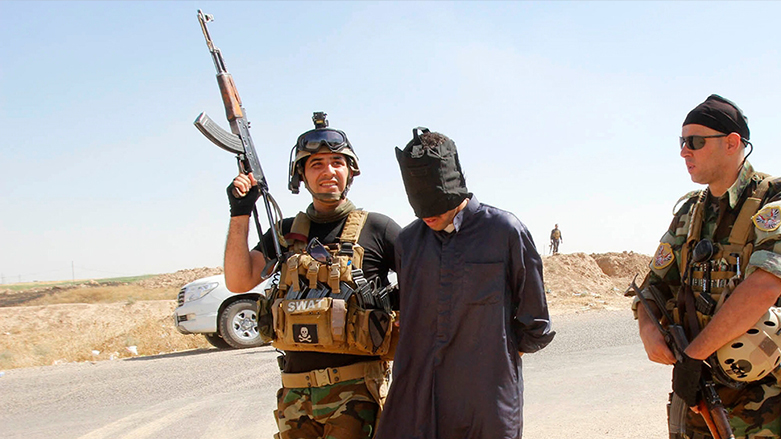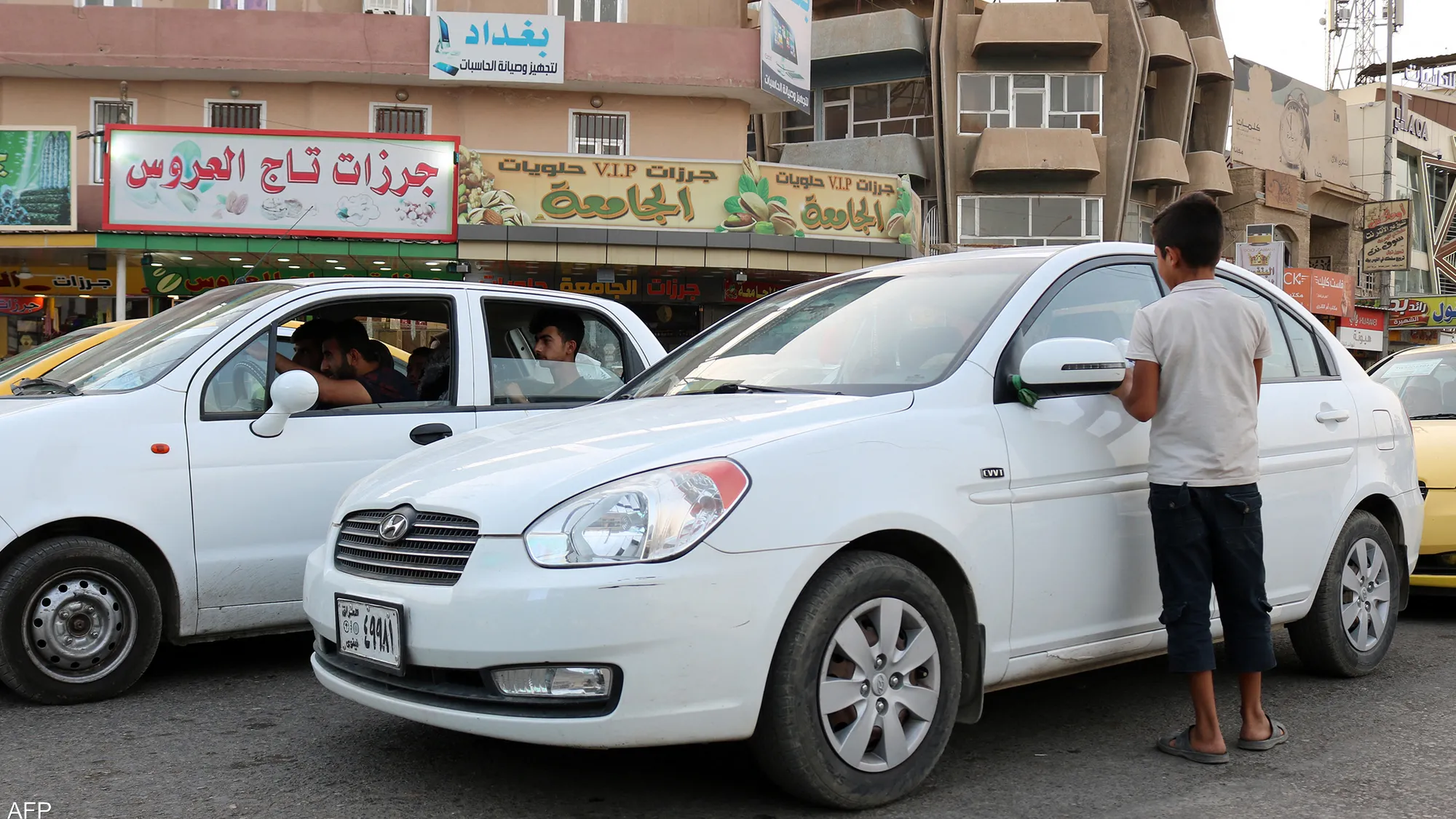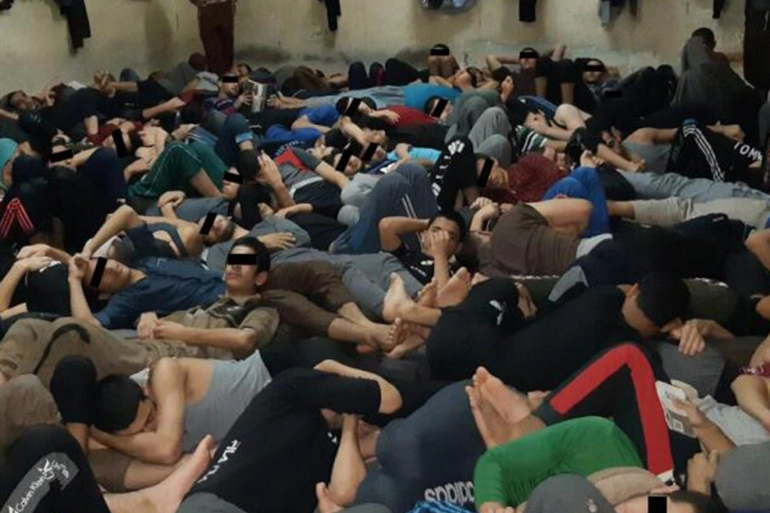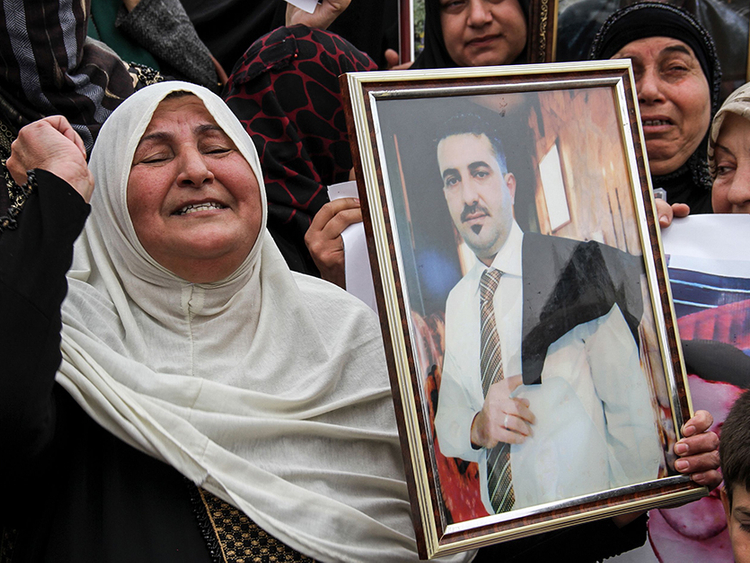The Iraqi Observatory for Human Rights said that the charge of belonging to ISIS worries the population of Mosul city, which was under the control of the organization. Some people use this charge to filter personal accounts or to dispose people who do not have positive relationships with them.
The methods of confidential reporting have been largely liberalized, and there have been arrests by relying on information provided by anonymous or known people at times. Dozens were arrested or perhaps more due to these reports, which 80% of them is inaccurate, according to security sources in the province of Nineveh reporting to the Iraqi Observatory for Human Rights.
A large number of residents fear that they may be accused of belonging to ISIS by secret reporting from people who have problems with or competitors at work. This concern for the population reminds them of the secret detective periods that were in place during the two terms of Nouri al-Maliki's government from 2006 to 2014.
Although Maliki's second government canceled it in the last months, the work of secret informer returned again after the liberation, but without a name to it.
The Iraqi security forces relied on information and communications from the public, which dealt with it in a big way. It appeared in a video clip of an anti-
terrorist officer in Anbar province in 2016. The arrests depends on instant testimonies presented by some people and a number of arrests followed.
The Iraqi Observatory for Human Rights said that "the arrests in this way undermine the law and reduce the confidence that is supposed to be returned between the citizen and the Iraqi security services, this way will conceal the turth and the real perpetrators who are supposed to be arrested and tried will be free, A whole society remains living under the threat of arrest. "
Member of the parliament for the province of Nineveh Jameela al-Obeidi talked about "the return of the secret detective and arbitrary arrests in the liberated areas of Mosul city, and the force wearing military uniforms arrest citizens without mentioning the reasons.
Al-Obeidi said that "the secret detective and random arrests have returned again, where there have been several cases of arrests from parties wearing military uniforms and without an identification identities or arrest warrants, some of the arrests are conducted in ways that they are offensive and not based on real information."
Article 123 of the Code of Criminal Procedure of Iraq states that "the governor of the investigation or the investigator shall interrogate the accused within 24 hours of his presence after ascertaining his identity and informing him of the crime attributed to him, and record his statements thereon with a statement of evidence he has denied, Questioning the accused in what he deems necessary to clarify the truth."
The Iraqi Observatory for Human Rights reported "the accused person is left for days, weeks or months without being presented to the investigating judge, which increases his vulnerability to the violation and absence of truth that must be reached to the court."
Ahmed al-Rashedi, 27, a pseudonym, spoke of a two-month detention of his brother because of a report was given to the Iraqi security forces by people who he had a personal disagreement with. "My brother, in his fourth decade, had a dispute with his coworkers after liberation operations and those he shared business with during the existence of the organization, after he wanted to dissolve the partnership and withdraw his money, which was the largest proportion they threatened of reporting him on charges of belonging ISIS.
"My brother did not care about the threat and did not expect them to be serious about their threat. Even if they reported, he believed that the Iraqi security forces would take the matter seriously and investigate it, but he was surprised that he was arrested and stayed for two months in detention without being brought before the court, but then the investigation officer took in charge and found that the communication is false. "
The Iraqi Observatory for Human Rights expressed that "false reports submitted to the Iraqi security forces have not been held accountable, but left without accountability or responsibility, which opens the way for others to submit false reports that may cause harm to a group of people."
A woman named Umm Walid from the city of Mosul told the Iraqi Observatory for Human Rights through a phone call that her son had been arrested since December 2017 until October 2018 without being found guilty. Said that "her son was not in Mosul when the organization invaded it and did not live during the period of organization control, but his relatives reported him to the security forces that he belonged to the organization because of family problems."
"My son was brought to Baghdad at Muthanna airport, I could not go to him, I'm fearful for the rest of my children from such false reports." My son has not been brought before the judge and we have not been able to visit him. Not only my son, I know dozens of cases in our whole region, all because of false reports.
The Iraqi Observatory for Human Rights said that "relying on false information in the arrests confirms the need for the Iraqi security system to establish new mechanisms to verify the information and arrest the accused persons, but staying like this, will cause thousands of innocent people to be put in jails without right.
Another problem that has not been addressed for 15 years is the delay in bringing the accused to trial. They remain in detention for many months until they are brought to trial, which also takes longer, which means that until the defendant is found guilty or acquitted, it almost takes a year.




